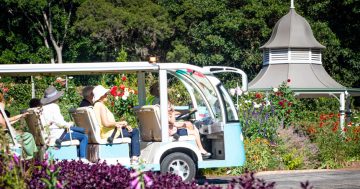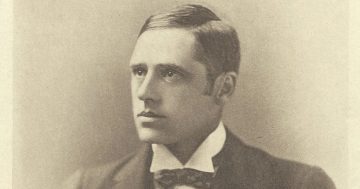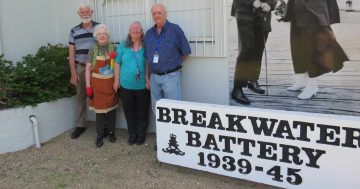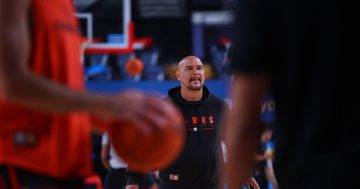
William Beach was dubbed the “Dapto Eel Puncher” because he learnt to row in fishermen’s style with short, jerky strokes and oars plunged deep into the water to cope with the choppy swell common on Lake Illawarra and Mullet Creek. Photo: Supplied.
Few 19th century Australians have ever been quite so celebrated as William Beach.
Today sporting legions indeed get both lauded and sometimes make big money but Bill Beach (who once resided in a humble shack in Brownsville, near Dapto) was probably the first Australian to make serious money from his sporting achievements.
Local legend claims Beach won his first race as a teenager against a publican, either for a bottle of brandy or five shillings.
Publicans could sometimes make extra cash by becoming bookmakers for local sporting events. Officially, however, John Brown of Brownsville was Beach’s early manager.
But Beach quickly moved from being locally famous to being garlanded with the laurels of some astonishing sculling world championship wins on both the Thames and Parramatta rivers.
Distinctively Australian greeting cards were even produced to try to cash in on Beach’s victories. Cigarette manufacturers in faraway America thought Bill Beach was a big enough deal to feature on their cigarette cards – even though they felt his physiognomy needed to be photoshopped a bit to make him look more gentlemanly.
One fabric manufacturer was of the belief that the best way to impress your girlfriend was to give her a scarf that featured the muscular physique of the bloke who was dubbed the “Dapto Eel Puncher” because he learnt to row in fishermen’s style with short, jerky strokes and oars plunged deep into the water so as to cope with the short choppy wind swell common on both Lake Illawarra and Mullet Creek.
For those whose girlfriends preferred a closer look at Bill Beach’s well-developed pecs, cheap photos of the man Banjo Paterson described as “Gypsy Beach” with “the face of Bismarck: the man of blood and iron” with his frame “knotted with muscles built up by years of swinging the sledgehammer” were sold.






Gambling and sculling often went hand in hand – particularly in a two-man sculling match as the chances were 50/50 and Lake Illawarra’s competitive scullers were probably not averse to throwing the odd race in order to enhance their winning by a wager or two (or even maybe 200).
As his fame increased, Bill Beach’s prize winnings grew and on 25 February 1852 he won £50 – a handsome sum.
But a leading Sydney surgeon, Dr Fortesque (after physically examining Bill Beach) declared that of all the thousands of men he’d examined none could compare with Beach.
He said: “There never was a man like this” and predicted defeat for the reigning world champion, a Canadian named Hanlan.
And so, in front of 30,000 spectators on the Parramatta River, Beach earnt £200 – quite apart from whatever gambling profits he may have made. In England two big wins of more than £1000 ensued.
When the man who once inhabited a humble shack returned home to a welcoming crowd at Belmore Basin in Wollongong, as the Illawarra Steam Navigation Company’s vessel rounded the Wollongong Lighthouse, a band began to play Handel’s “See The Conquering Hero Comes”.
Of Beach’s celebrity, Banjo Paterson wrote in 1901 that “the English are quite in the dark about us: their one idea is that the visit of the Duke of York (later King George V) marked an epoch in the history of Australia. I longed to say, ‘Yes, he got nearly as big a reception as Bill Beach the sculler.’”
An illuminated address presented by the citizens of Illawarra to Bill Beach was held by the Dapto Leagues Club. And the finest item of sheet music held anywhere in Illawarra is “The Champion Oarsman Polka: William Beach”, published by W H Paling and Co.
Eventually Beach’s prize winnings seem to have run short (he had lots of kids) and Beach worked as a “celebrity ranger” at the Royal National Park from 1906-1913.
He thus only got back to Dapto on weekends for some seven years before finally retiring to live at “Champion Cottage” in Brownsville.
His wife predeceased him in 1931 and at his death in 1935, aged 85, Beach was survived by 10 of the couple’s 12 children.















